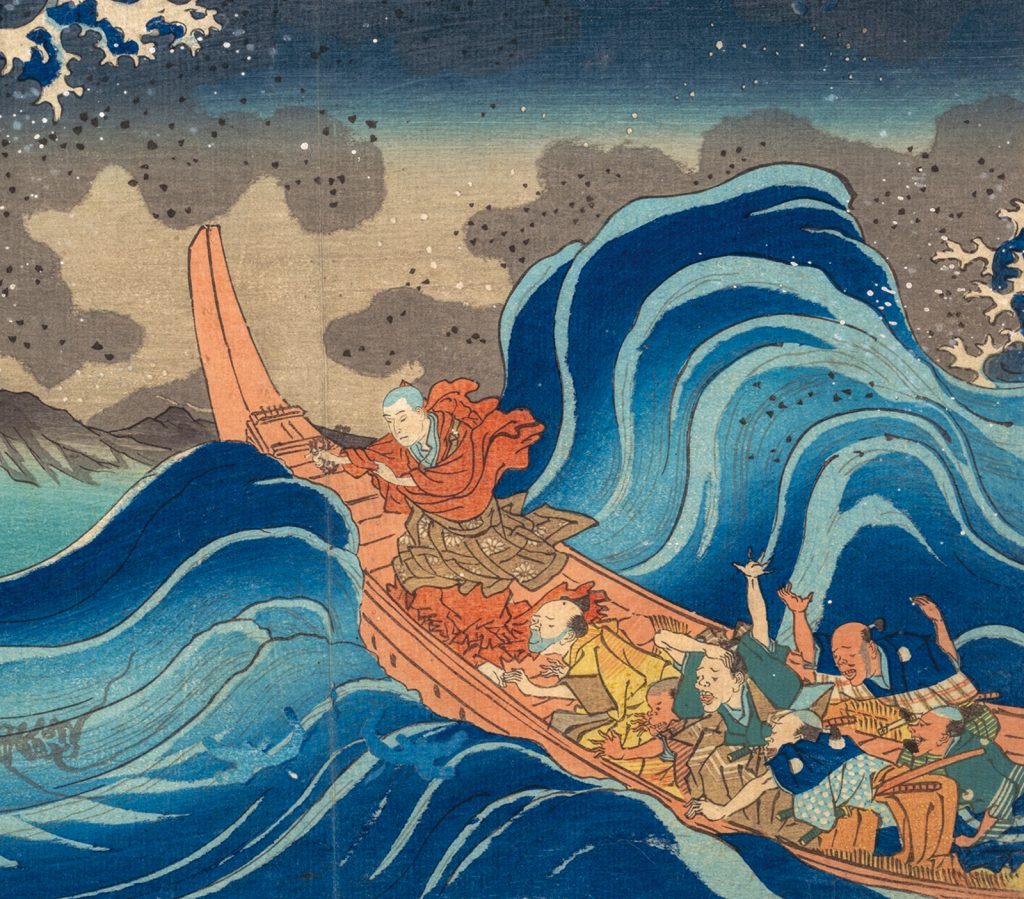When I began my journey with Nichiren Shu, I participated in a ritual called the Entering Faith and Returning to Rectitude ceremony (Jpn., Nyushin kisho-shiki), which marked a significant change in my path. This was the moment when I began to explore the idea of refuge, and in particular the way it relates to the three treasures of Buddha, dharma, and sangha.
For many of us in the West, the concept of refuge is often misunderstood or only partially understood, primarily because the words we use to describe the three treasures are not necessarily part of our lexicon. Yet the Buddha virtues of parent, teacher, and sovereign not only are key to helping us understand the teachings on refuge and the three treasures but also provide an incentive to more deeply explore becoming refuge ourselves.
In the Lotus Sutra, the Buddha said, “This triple world is my property. All living beings therein are my children. There are many sufferings in this world. Only I can save all living beings” (trans. Senchu Murano). Nichiren Daishonin expressed this teaching as the three virtues, explaining that a buddha has the lovingkindness and compassion of a parent, the wisdom of a teacher, and the mastery of a ruler who alleviates the sufferings of the world.
Whenever a problem arises that appears to be insurmountable, we can lean upon the Buddha as parent. This does not mean seeking another to solve our issues; it means accepting that we have a foundation based on the Buddha’s inherent desire for the awakening of all beings. When my own father died, I realized I was able to act boldly because he was always present to catch me if I fell. It is the same with the Buddha. Support comes from adhering to his teachings and in doing so—as we become attuned to the tenets of Buddhism—we become more upright and develop character.
Understanding Buddha as teacher relies upon our study of the dharma and its application in our daily lives—which in turn leads to a deeper understanding of dharma and daily life as inseparable. Teachings such as “changing poison into medicine” suggest that every situation occurring in our lives—especially those we view negatively—can lead to a greater good. Or, when a situation requires a response that we may not see clearly, faith can help us get through it, and so we are wise enough to rely on faith. And since we can always turn poison into medicine, practice is worthwhile in every moment. Knowing this can bring about joy and help us to cultivate beginner’s mind—another teaching.
With respect to the sovereign virtue, we can view sangha as the arena of practice, which allows us to see ourselves reflected in the mirror of our lives, developing and growing through polishing that mirror. We are all interdependent; there is no separation among us. Thus sangha creates a space to relinquish our individuality and tap into the Beloved Community. Although we may at first enter practice to serve our own purposes, within sangha we realize that community is the vehicle of transformation—of and for ourselves, and also for all living beings.
Taking refuge demands a deep dive into relinquishing our notions of individuality, even as we are transformed into individuals capable of creating and holding safe space for all beings. This is how we provide one another with a foundation to be bold and to walk the path of practice with confidence.
Thank you for subscribing to Tricycle! As a nonprofit, we depend on readers like you to keep Buddhist teachings and practices widely available.
